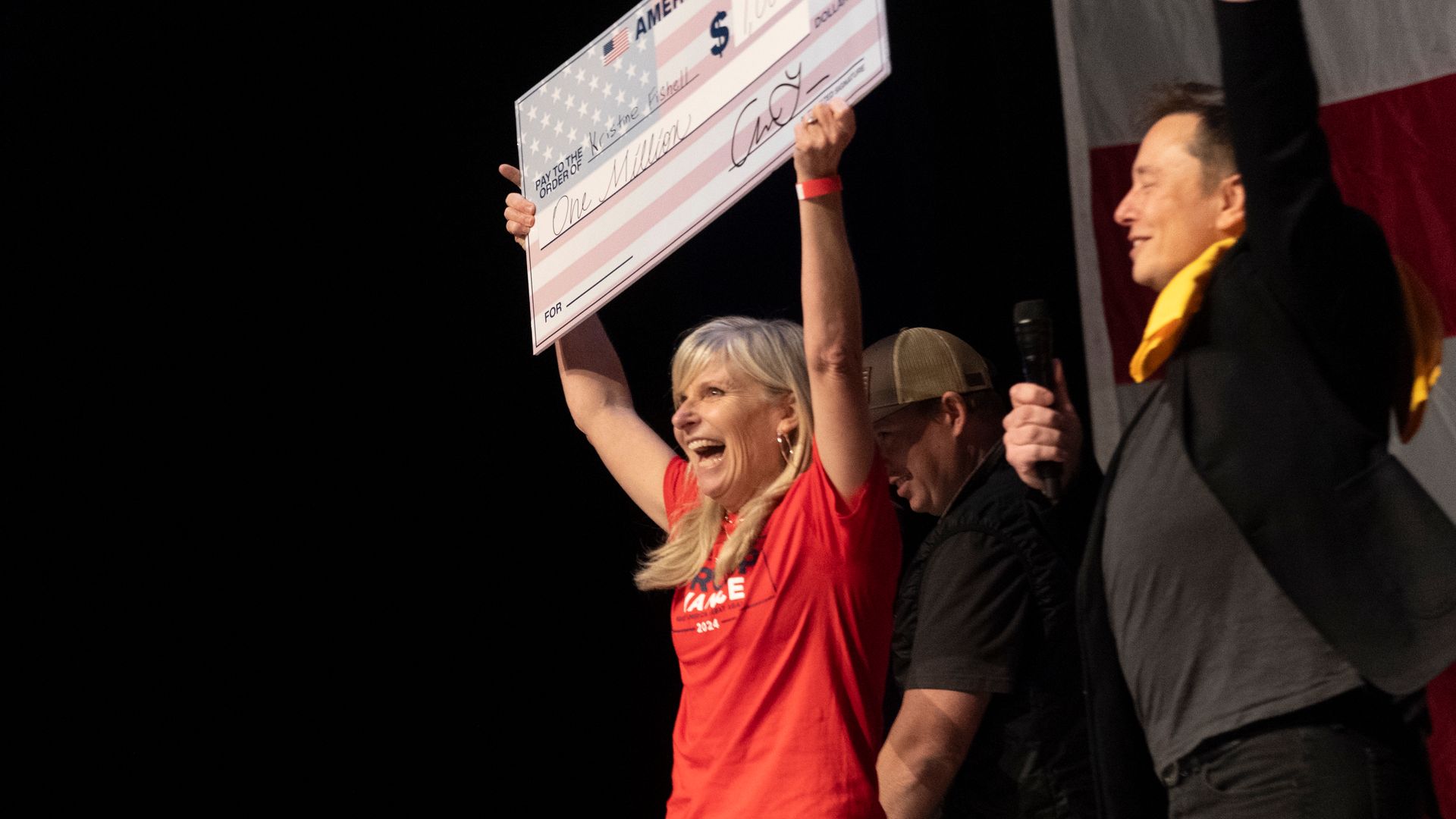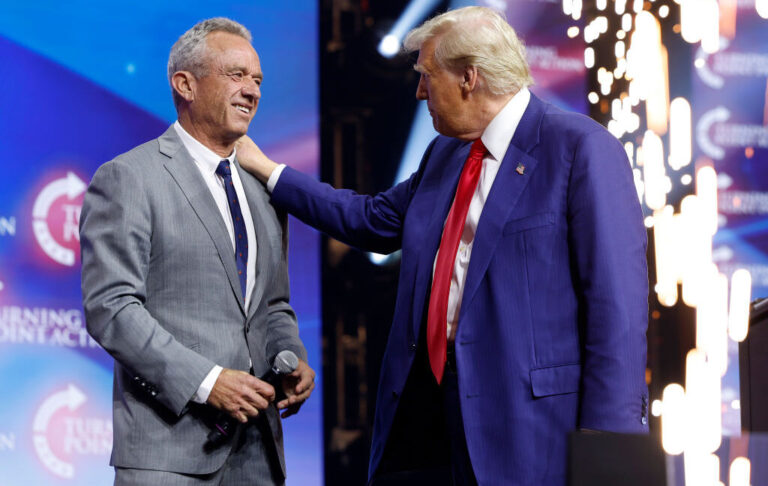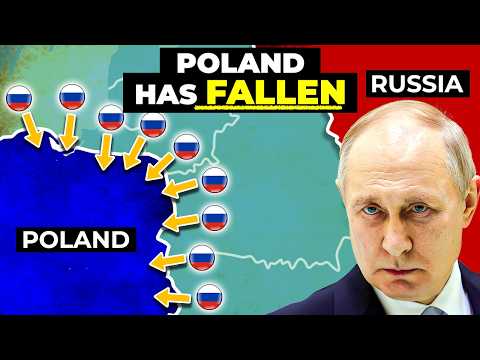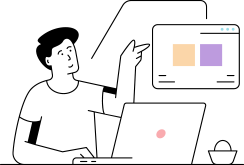
[Ray Bogan]
Elon Musk is going to pay someone $1 million every day between now and the election. To qualify, the recipients must be a registered voter in one of seven swing states and sign a petition supporting the first and second amendments.
A different person will receive the $1 million payment each day between now and Nov. 5. In addition, participants will receive $47 for every registered voter they get to sign.
Some say this is illegal. They contend it’s essentially paying people to register to vote. Pennsylvania Gov. Josh Shapiro, D, whose state has already had three winners, is calling for an investigation.
SAN interviewed attorney Jerry Goldfeder who has focused on election law and voting rights for 40 years. He’s the director of Fordham Law School’s Voting Rights and Democracy Project and a senior counsel at Cozen O’Connor. Here’s our conversation.
Ray: In general, do you think that’s legal?
Jerry Goldfeder:
No, there are federal statutes that deal with lotteries. They are not permitted.
But more specifically, there are federal statutes and Department of Justice handbooks that say that you can’t pay somebody to vote and you can’t pay somebody to register. So here we have a situation where the only person who can sign the petition and win is somebody who has registered to vote in a particular state. So either they are being paid and encouraged to register or perhaps they’re being rewarded for having registered previously. So there’s a real linkage between paying someone money and the registration requirement that he’s put into place. That’s not permitted.
Ray:
Now when Elon Musk gave out the first reward, he said, “The only thing we ask for the million dollars is that you be a spokesperson for the petition.” When he makes a public statement like that about what he says the cause is, does that make a difference?
Jerry Goldfeder:
Not really because he’s requiring someone to be a registered voter. So either they’re going to register in order to sign the petition or they’re being rewarded for having been registered because those are the only people who can get this money. So there’s a direct linkage between registration and the money and that’s not permitted under the law.
Ray:
Now you’ve already touched a couple of times on the linkage between registration and the money, but let me just ask you this question – Three people in Pennsylvania who received the money had already voted. Does it matter if the contestants had already voted?
Jerry Goldfeder:
Well, if the requirement is not related to having voted or promising to vote, he’s clear about that. The contest, or the ability to get money, is linked to the registration. And that in and of itself is unlawful, irrespective of whether they voted or they’re promising to vote. If he only promised money to those people who voted, that would be an additional violation of the law.
Ray:
Does the amount make a difference? Obviously, a million dollars is a life-changing amount of money for just about everyone.
Jerry Goldfeder:
It could be $50,000, it could be $5,000. The money doesn’t make a difference in terms of what’s lawful and what’s not lawful.
Ray:
Who has the authority to investigate this? Obviously you mentioned federal statutes, but Pennsylvania Governor Josh Shapiro also said that the authorities should investigate. If he gave money to people in Pennsylvania, does that give Pennsylvania authorities the ability to open an investigation?
Jerry Goldfeder:
Well, they can open up an investigation. The state can open up an investigation. But the real authorities that deal with this federal election is the Federal Election Commission, the administrative agencies that regulate campaign finance laws, and of course the Department of Justice. Now, the FEC, the Federal Election Commission, can open up an investigation on its own or perhaps it will get a complaint. But it doesn’t need to get a complaint in order to open up an inquiry.
And if it did so, it would send Musk a letter and he’d have an opportunity to respond and it would take quite some time.
On the other hand, the Department of Justice does not have to wait for the Federal Election Commission to investigate. It can do so on its own with regard to civil and criminal statutes that are in play. So whether or not that will occur, of course, remains to be seen.
Even if the Federal Election Commission or the Department of Justice decides to open an inquiry, we won’t see results for that for quite some time.
Ray:
What could the potential punishment be? And the second part of the question is, could the people who receive the money ultimately have to pay it back?
Jerry Goldfeder:
Well, I don’t think they’d have to pay it back, but that’s an interesting issue. The Department of Justice or the FEC may require them to do so under their different set of statutes.
But the violation, if there is a violation of the statute, as I think that there is, the penalties could be civil penalties, fines against Elon Musk, or it could be a criminal case, in which case they’d have to find intent to violate the laws. And at this point, he certainly knows that the laws exist because there’s been a lot of commenting on it on social media, on TV, on all sorts of cable and so on. So perhaps in the beginning, he didn’t realize he was breaking the law, perhaps, but at this point, he certainly should be aware and he certainly has what we call constructive knowledge of breaking the law. So I think that there’s a civil exposure as well as criminal exposure.
Ray: Jerry, thank you very much. appreciate your time.





